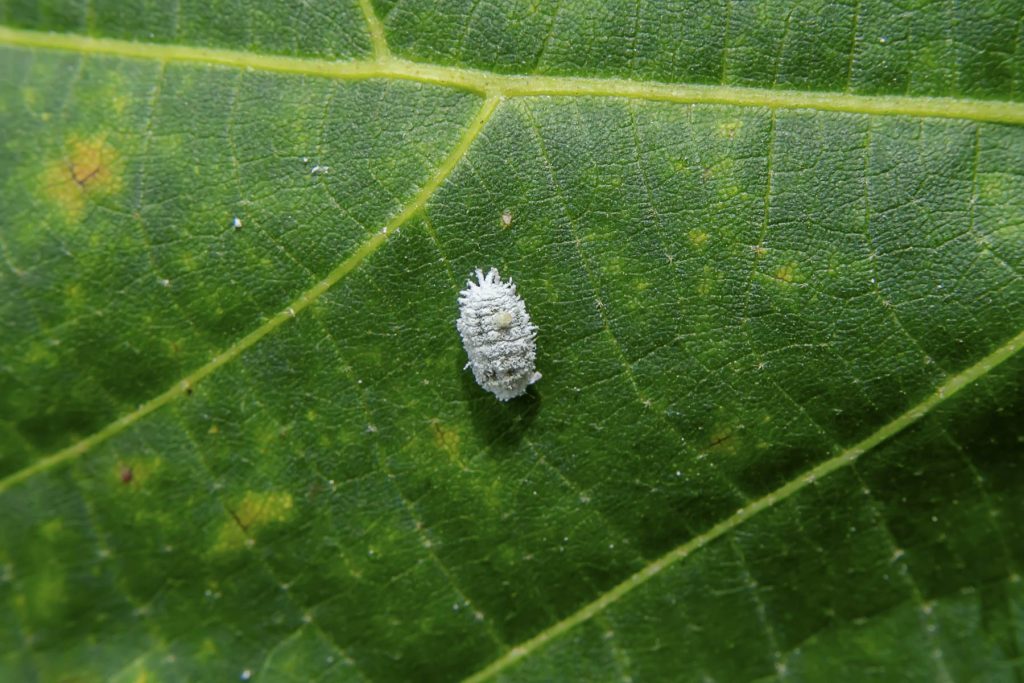
Mealybugs are small, white insects that feed on plant sap and secrete a sticky substance called honeydew. They are often found on houseplants and in gardens, especially on citrus trees, succulents, orchids, and other ornamental plants. Mealybugs can damage plants by sucking out their nutrients, causing wilting, stunting, and yellowing of leaves. They can also attract mold and ants, which can further harm the plants.
But are mealybugs harmful to humans? The short answer is no, mealybugs do not bite, sting, or transmit diseases to humans. However, they can cause some problems for people who are allergic or sensitive to their waxy secretions, or who come into contact with large numbers of them. Here are some of the possible effects of mealybugs on humans and how to avoid them.
Before we get into the effects of mealybugs on humans, let's first learn how to identify these pests.
Female mealybugs lay hundreds of eggs in tiny, white, cotton-like sacs. They usually attach these sacs to plant matter like leaves or twigs. The eggs hatch into nymphs, which look like adult females but are more mobile and have less wax.
Male mealybugs are rare and look quite different from females. They have wings and a long wax tail, but no mouthparts.
Mealybugs can be confused with other scale insects, but they are distinguished by their flat and waxy appearance and their lack of a hard shell. They also tend to cluster in crevices and under leaves, where they feed on plant sap.
Some people may experience skin irritation, redness, or itching when they touch mealybugs or their honeydew. This is because mealybugs produce a wax-like substance that covers their bodies and protects them from dehydration and predators. This substance can be irritating to some people's skin, especially if they have cuts or wounds.
To prevent skin irritation from mealybugs, it is advisable to wear gloves when handling infested plants or pruning them. If you do get in contact with mealybugs, wash your hands thoroughly with soap and water and apply a soothing cream or lotion if needed.
Another possible effect of mealybugs on humans is respiratory problems, especially for people with asthma or allergies. This is because mealybugs' honeydew can attract a fungus called sooty mold, which grows on the leaves and stems of infested plants.
Sooty mold is black and powdery and can reduce the photosynthesis of plants. It can also release spores into the air, which can be inhaled by humans and cause allergic reactions or asthma attacks.
To prevent respiratory problems from mealybugs and sooty mold, it is important to keep your indoor plants clean and healthy and to remove any infested plants from your home or greenhouse. You can also use a HEPA filter or an air purifier to improve the air quality in your living space.
A more indirect effect of mealybugs on humans is crop damage and economic loss. Mealybugs can infest a wide range of crops, such as mangoes, sugarcane, pineapples, grapes, tomatoes, and peaches. They can reduce the yield and quality of these crops by feeding on their sap and weakening their growth. They can also transmit viruses and bacteria that can cause diseases in plants.
Mealybugs can be difficult to control because they have a high reproductive rate and can hide in crevices and under leaves. To prevent crop damage from mealybugs, farmers need to use integrated pest management strategies that include biological, cultural, mechanical, and chemical methods.
Mealybugs can be a nuisance for gardeners and plant lovers, as they can infest a wide range of plants and cause various problems. Fortunately, there are some natural ways to control mealybugs without using harsh chemicals. Here are some methods you can try:
In conclusion, mealybugs are not harmful to humans directly, but they can cause problems for people who are sensitive to their secretions or who breathe in their mold spores. They can also damage crops and affect the livelihoods of farmers. Therefore, it is important to identify and control mealybug infestations as soon as possible.
No, mealy bugs do not infest humans; they primarily infest plants.
It's not harmful to touch mealybugs, but they can be a nuisance if they infest plants in your home or garden.
Yes, you should get rid of mealybugs to protect your plants from damage.
Mealybugs are generally not harmful to dogs, but it's best to prevent ingestion as some species can cause mild gastrointestinal issues.